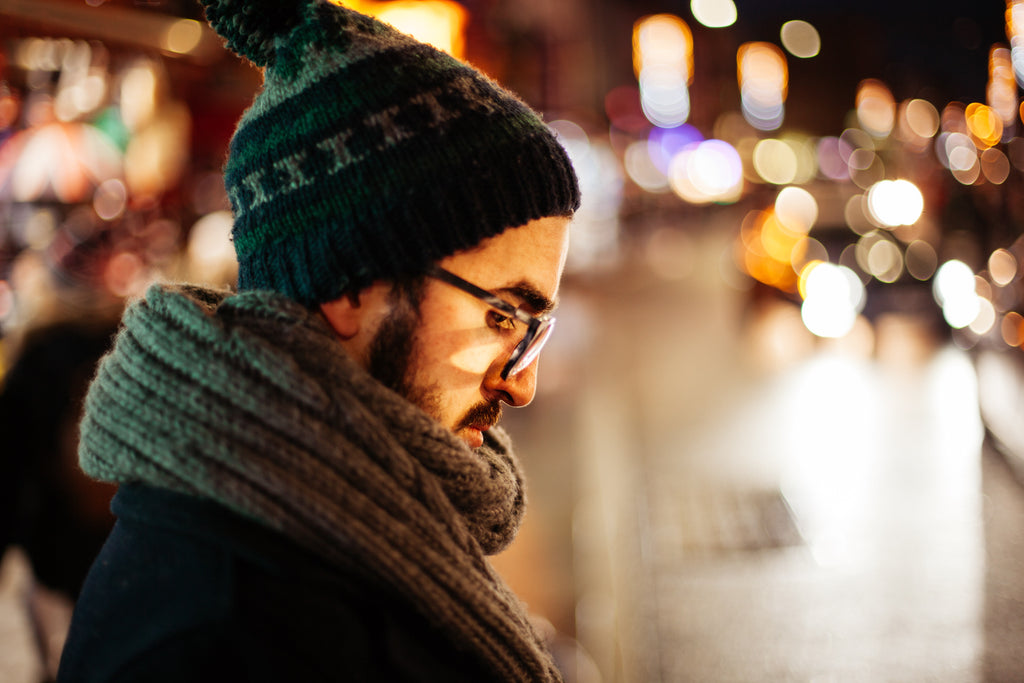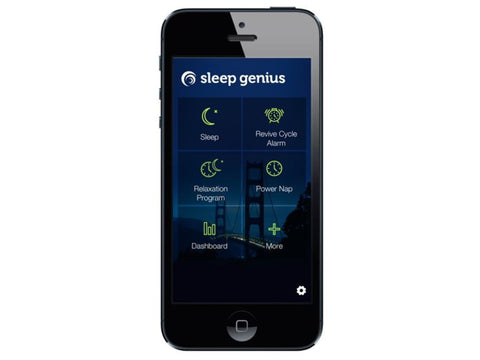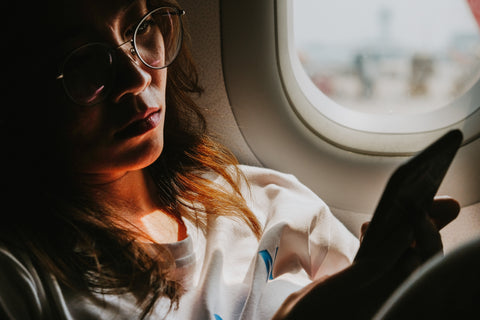Both humans and animals are struggling with the effects of an illuminated world that has radically disrupted circadian rhythms.
Who doesn’t like to look out over a cityscape at night and marvel at seeing millions of bulbs coming together to illuminate our world? It feels like progress – like the triumph of the species over the forces of darkness. Ironically, darkness happens to be extremely healthy for humankind and animals too, and as we push more and more light into the world 24 hours a day, we are doing serious damage to our health.
Light Pollution
Light pollution may not be on many people's radar but it should be. Defined as the brightening of the night sky caused by street lights and other man-made sources, light pollution has a disruptive effect on natural cycles and inhibits the observation of stars and planets.
The Bortle Scale, a nine-level scale based on nearly 50 years of observing the night, is used to quantify the darkness of the night sky. It’s creator, John E. Bortle said, “I hope it will prove both enlightening and useful to observers.”
The nine levels of the Bortle Scale are:
- Excellent dark-sky site
- Typical truly dark site
- Rural sky
- Rural/suburban transition
- Suburban sky
- Bright suburban sky
- Suburban/urban transition
- City sky
- Inner-city sky
Bortle observed that, “Thirty years ago one could find truly dark skies within an hour's drive of major population centers. Today, you often need to travel 150 miles or more. In my own observing career I have watched the extent to which ever-growing light pollution has sullied the heavens.”
Researchers are concluding that both the amount and the type of light that surrounds us is having a real and lasting effect on our ability to get a good night’s sleep and function properly. Awareness about light pollution means that we must ask ourselves meaningful questions like “What is the least detrimental type of night light?’ and ‘Can certain frequencies of light put us at ease and help with relaxation and ultimately deep sleep ?”.
We all know how unpleasant it is to feel sleep-deprived, but the lack of deep sleep goes beyond discomfort. “Disruptions to our circadian rhythm can affect overall health and wellbeing, weight loss, libido, mood, and sleep patterns”, writes Ronda Kaysen for the New York Times. Chronic sleep deprivation can even increase the risk of several well-known risk factors for heart disease including higher cholesterol levels, higher triglyceride levels, and higher blood pressure. Even in healthy people, imbalances caused by sleep deprivation can cause a strain on the heart.
“People are exposing themselves to (artificial) light and it’s having a cascading effect on their health on multiple levels,” said Dr. Michael J. Breus, a clinical psychologist and a fellow at the American Academy of Sleep Medicine.
Restoring Your Circadian Rhythm
Each of us has times of the day when we feel productive, and times when we feel sleepy. We also have times when we are hungry and times when we are full of energy, and of this is dictated by light as well as the absence thereof. Hard as it is to accept, we are animals with certain hard-wired rhythms to our lives that play out every 24-hour period. When we mess with that rhythm, we do so at our own peril.
The National Sleep Foundation explains that “Your circadian rhythm is basically a 24-hour internal clock that is running in the background of your brain and cycles between sleepiness and alertness at regular intervals. It's also known as your sleep/wake cycle.” This cycle gets disrupted when we fly, use stimulants such as caffeine to stay awake, and use artificial lighting and digital entertainment to push past our natural urges to sleep. All of these factors alter our natural responses to the environment we live in and ultimately are having degenerative effects on our genome - think of cancer as an example. The bottom line is that sleep is rejuvenate and crucial to us as a species.
The circadian rhythm is controlled by the hypothalamus, a part of the brain that responds strongly to the amount of light and darkness it experiences. There is a system inside the hypothalamus that secretes a hormone called melatonin, which is crucial in regulating the amount of sleep we get. Writing for TheConversation.com, Professor Richard Stevens from the School of Medicine at the University of Connecticut takes this even further, saying that the hormone melatonin “has many important biological functions, and its production requires dark but not sleep.”
The amount of light that we are exposed to in the industrial world shuts down our melatonin production in ways that light from a candle flame or a wood fire never did.
Red light, more than any other light spectrum, has the opposite effect on our melatonin production. Because it has a far lower color temperature than blue light, you can immerse yourself in red light without it giving your body the awakening jolt you receive from exposure to blue light.
What Colors of Light Are Bad for Sleep?
When we are scrolling through our social media feeds in bed or watching television late at night, the screen’s blue and green light deprives us of the darkness that we need to produce melatonin.
Red light is much better for going to sleep – red light bulbs aid in the production of melatonin, which naturally leads to a good night’s sleep.
Of course, it’s unlikely that we will ever go back to the levels of darkness that existed before electricity changed the world. But what we can do is increase the amount of red light we are exposed to at night and minimize our exposure to blue and green light.
A New Wave of Light Sensitive Products
Many organizations are dedicating vast resources towards new smart bulbs that can change the quality of light they deliver during the course of a 24-hour cycle.
“Lighting Science has produced a line of biological bulbs that give off light meant to complement the circadian rhythm, not disrupt it,” writes Kaysen for the Times. Companies like Philips are working on new products where “You can program routines, like one that slowly turns the lights on in a bedroom to wake you up in the morning.” Their line of products known as Hue connect your lighting system with your smartphone via apps that you can control to “forever change the way that you experience light.”
Even Apple and Samsung have introduced operating system settings that minimize the amount of blue light emitted by phones during nighttime hours.
But changing the lighting setup in your home can be prohibitively expensive.
What many people are finding to be a better solution is investing in a pair of “blue-blocker” glasses that protect your eyes from the damaging and overwhelming effects of blue light. But it’s not only blue ligh that is proving harmful. Green light is a culprit as well. Browse SafetyBlueTM Eyewear’s collection of stylish blue & green blocking glasses and find the style that will help regulate the amount of blue and green light you experience so you can restore your circadian rhythm and keep your mind sharp and your body healthy.
If you are curious about light pollution where you live, take a look at this interactive Light Pollution Atlas to help you find the darkest possible area in your region reachable by car. Color-coded zones of light pollution overlay detailed road maps that you can zoom into in great detail. Click anywhere and you'll get details about the site including its Bortle class.
SOURCES:
http://theconversation.com/are-we-sleep-deprived-or-just-darkness-deprived-49412
https://www.scribd.com/document/341455535/106-Candle-Light-Style-Organic-Light-Emitting-Diodes-1-pdf
https://www.nytimes.com/2017/02/10/realestate/light-bulbs-that-help-you-sleep.html
https://www.health.com/sleep/red-spectrum-light-sleep
https://www.sleepfoundation.org/articles/what-circadian-rhythm




